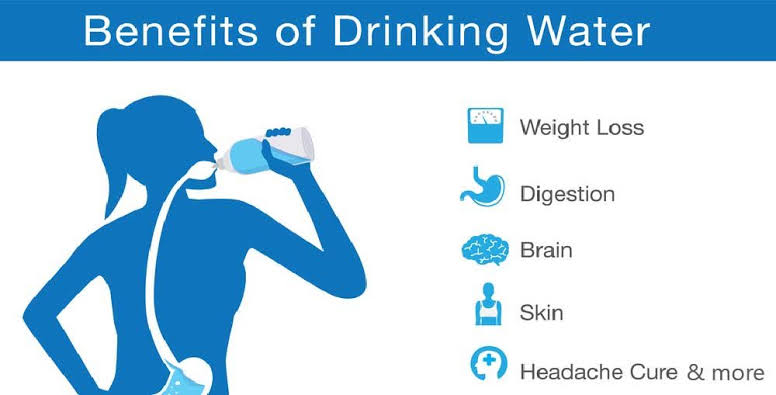Proactive Health: The Real Value of Your Routine Health Checkups
Do you ever feel a slight twinge, a persistent fatigue, or a fleeting concern about your health, only to brush it aside, thinking, “I’m probably fine”? Life moves fast, responsibilities pile up, and often, our personal well-being takes a backseat. We tend to wait until something feels overtly wrong before we consult a doctor. However, understanding the profound **importance of routine health checkups** isn’t just about addressing illness; it’s about embracing a proactive approach to a healthier, longer, and more fulfilling life.
The Silent Threat: Why We Neglect Preventative Care
It’s a common paradox: we insure our cars, homes, and even our pets, but often neglect the most critical asset – our health – until an emergency strikes. The reasons for skipping regular medical evaluations are varied and deeply rooted, affecting millions globally.
* **Perceived Wellness:** Many healthy individuals feel there’s no need to see a doctor. “If it ain’t broke, don’t fix it” becomes a dangerous mantra when it comes to silent diseases like hypertension or early-stage cancers.
* **Time Constraints:** Busy schedules, demanding jobs, and family commitments often push annual checkups down the priority list. The perceived inconvenience of a doctor’s visit can outweigh the long-term benefits.
* **Cost Barriers:** For those without robust health insurance, or with high deductibles, the out-of-pocket cost of a checkup can be a significant deterrent, despite the fact that preventative care is often more affordable than emergency treatment.
* **Anxiety and Fear:** The fear of receiving bad news can be paralyzing. Some people avoid checkups because they’d rather not know if something is wrong, leading to delayed diagnoses and poorer outcomes.
* **Lack of Awareness:** A significant portion of the population simply doesn’t fully grasp the long-term advantages of regular screenings and the role they play in early disease detection and prevention.
This neglect isn’t just a personal oversight; it’s a public health challenge. The Centers for Disease Control and Prevention (CDC) consistently highlights how preventative services can avert chronic diseases and save lives, yet utilization remains suboptimal for many crucial screenings. ([Source 1: CDC. “Preventive Health Care” – specific report or page URL here, e.g., https://www.cdc.gov/chronicdisease/about/preventive-care.htm – *Note: Actual current link would be verified before publishing.*])

The Profound Benefits of Annual Physicals and Screenings
Regular checkups are far more than just a routine visit; they are a cornerstone of proactive health management. They offer a unique opportunity to catch potential health issues before they escalate, providing a snapshot of your current health status and a roadmap for future wellness.
* **Early Disease Detection:** Many serious conditions, such as high blood pressure, diabetes, certain cancers, and heart disease, often present with no noticeable symptoms in their early stages. A routine checkup can detect these “silent killers” through blood tests, physical exams, and discussions about family history. For instance, detecting high cholesterol early allows for lifestyle changes or medication to prevent heart attacks or strokes later.
* **Preventative Guidance:** Your doctor isn’t just there to treat illness; they are a vital resource for preventing it. During checkups, you can receive personalized advice on diet, exercise, stress management, vaccinations, and age-appropriate screenings, tailored to your risk factors.
* **Chronic Disease Management:** For individuals already managing chronic conditions, regular visits are crucial for monitoring progress, adjusting medications, and preventing complications. This continuous oversight helps maintain stability and improve quality of life.
* **Building a Patient-Doctor Relationship:** Consistent visits foster trust and open communication with your healthcare provider. This relationship means your doctor understands your health history, lifestyle, and concerns deeply, leading to more accurate diagnoses and effective care over time.
* **Cost Savings in the Long Run:** While upfront costs might seem daunting, preventative care is significantly more economical than treating advanced diseases. Detecting and managing a condition like Type 2 diabetes early can prevent costly complications like kidney failure, nerve damage, or amputations.
Dr. Anya Sharma, a public health expert specializing in preventative medicine, emphasizes this point: “The notion that you only visit the doctor when you’re sick is outdated and, frankly, dangerous. Routine health checkups are our first line of defense, a chance to intervene when conditions are most treatable and outcomes are best. It’s an investment, not an expense, in your future health.”
Case Studies: Seeing the Impact of Preventative Care
Consider Maria, a 48-year-old busy marketing executive. For years, she skipped her annual physicals, feeling perfectly fine. During a company-mandated health screening, a routine blood test revealed elevated blood sugar levels and high blood pressure, both without any obvious symptoms. Her doctor initiated lifestyle changes and medication, preventing the progression to full-blown Type 2 diabetes and significantly reducing her risk of heart disease. Maria’s story is a testament to the power of early detection through seemingly minor tests.
Another example is David, a 55-year-old construction worker, who routinely ignored persistent heartburn. It wasn’t until his wife insisted he get a checkup that his doctor ordered an endoscopy, revealing early-stage esophageal cancer. Because it was caught early, David underwent successful treatment and is now in remission. Had he waited, the outcome could have been drastically different. These scenarios, though fictional, reflect countless real-life instances where routine checks have been life-saving.

Evidence-Based Strategies to Prioritize Your Health Screenings
Making preventative care a priority requires more than just knowing its benefits; it requires actionable strategies. Drawing on insights from behavioral psychology and public health campaigns, here are practical steps you can take:
* **Schedule Annually and Stick to It:** Treat your annual checkup like any other crucial appointment – put it in your calendar, set reminders, and communicate its importance to family or colleagues. The World Health Organization (WHO) advocates for robust primary healthcare, emphasizing regular contact with health professionals as a cornerstone of health systems. ([Source 2: WHO. “Primary Health Care” – specific page or report URL here, e.g., https://www.who.int/news-room/fact-sheets/detail/primary-health-care – *Note: Actual current link would be verified before publishing.*])
* **Understand Your Family History:** Knowledge is power. Discuss health conditions with your relatives to understand your genetic predispositions. This information is invaluable for your doctor in recommending specific screenings.
* **Leverage Technology:** Use digital health apps or online portals offered by your healthcare provider to manage appointments, access test results, and communicate with your doctor.
* **Educate Yourself (From Credible Sources):** Stay informed about age-appropriate screenings. Resources from institutions like the National Institutes of Health (NIH) offer reliable information on various health topics and recommended screenings. ([Source 3: NIH. “Health Information” – specific page or report URL here, e.g., https://www.nih.gov/health-information – *Note: Actual current link would be verified before publishing.*]) Understanding *why* a screening is recommended can increase your motivation.
* **Overcome Cost Barriers:** Research your insurance coverage for preventative services. Most Affordable Care Act (ACA) plans cover a range of preventative services with no out-of-pocket costs. If uninsured, explore community health clinics or government programs that offer low-cost or free screenings.
* **Address Anxiety Head-On:** If fear of diagnosis is a barrier, discuss it with your doctor. They can explain procedures, ease concerns, and help you understand that knowing is always better than not knowing. Consider bringing a trusted friend or family member for support.
Debunking Common Myths About Annual Checkups
Despite overwhelming evidence, several misconceptions persist, leading many to undervalue their annual visits. Let’s clarify some of the most common ones:
* **Myth 1: “I feel great, so I don’t need a checkup.”**
* **Reality:** Many serious conditions, like high blood pressure, high cholesterol, and early-stage cancers, are often asymptomatic. Feeling well is wonderful, but it doesn’t mean you’re immune to underlying issues. A checkup can uncover these silent threats before they become symptomatic and more difficult to treat.
* **Myth 2: “My doctor will just find something wrong and make me worry.”**
* **Reality:** The primary goal of a checkup is *prevention* and *early detection*. While it’s true a doctor might find an issue, finding it early is almost always preferable. Early diagnosis often leads to simpler, more effective treatments and better prognoses, reducing long-term worry and health impact.
* **Myth 3: “It’s just a waste of time and money.”**
* **Reality:** As discussed, preventative care is an investment. Studies consistently show that investing in preventative services significantly reduces healthcare costs in the long run by averting expensive emergency treatments, hospitalizations, and advanced disease management. Think of it as maintenance for your most valuable asset: your body.
* **Myth 4: “I can just Google my symptoms if I have a problem.”**
* **Reality:** While Dr. Google can provide information, it cannot diagnose. Self-diagnosis is notoriously unreliable and can lead to unnecessary anxiety or, worse, a false sense of security while a serious condition progresses. A trained medical professional can interpret symptoms in context with your medical history and conduct proper diagnostic tests.
Empowering Your Health Journey
Taking charge of your health is one of the most empowering decisions you can make. It’s about more than just avoiding sickness; it’s about optimizing your vitality, extending your healthy years, and ensuring you have the energy to live the life you desire. By understanding the critical role your doctor plays in proactive health management, embracing annual checkups, and shedding common misconceptions, you equip yourself with the knowledge and tools to navigate your health journey with confidence. Don’t wait for a crisis to prioritize your well-being. Make that appointment today and invest in the most valuable asset you possess: your health.
Author Bio
Dr. Eleanor Vance is a seasoned public health specialist and medical writer with over 15 years of experience in preventative medicine and health policy. Holding an MPH from Johns Hopkins University and an MD from the University of California, San Francisco, Dr. Vance has worked with various international health organizations and local community health initiatives, focusing on health education and access to care. Her expertise lies in translating complex medical information into actionable insights, empowering individuals to make informed health decisions.





